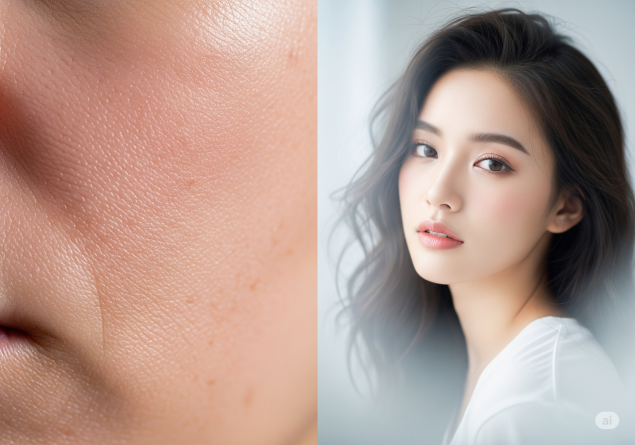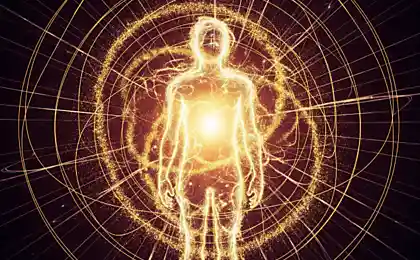98
5 Reasons Why You Don't Like Yourself But Other People Like You
Scientific explanation of the paradox of self-perception

Familiar situation: you stand in front of the mirror and see continuous shortcomings - wrinkles, fatigue, imperfect proportions. But suddenly you get a sincere compliment from a friend or the admiring look of a stranger, and you freeze in bewilderment. Are they really seeing it, or are they just being polite? It turns out that this paradox has deep psychological roots that scientists around the world study.
Research in cognitive psychology shows that our self-perception is fundamentally different from how others see us. This is not an accident, but a regularity based on the peculiarities of the human brain and social interaction.
Reason 1: Distortion of mirror perception
The effect of excessive acquaintance
You see yourself more often than anyone else – the average person looks at their reflection more than 50 times a day. This constant contact with one’s own image creates a phenomenon that psychologists call the “over-acquaintance effect.”
When you look in the mirror, your brain automatically goes into analysis and comparison. You don’t just see, you evaluate, you look for change, you compare to past versions of yourself or to beauty standards. It is similar to the way an art historian views a picture through a magnifying glass, noticing each brush stroke.
A study by Nicholas Epley from the University of Chicago showed that people rate their own attractiveness 20% lower than they appreciate others. This is because we focus on the details rather than the overall impression.
People around you see you whole. They don't study your face millimeter by millimeter; they read your energy, your charisma, your gaze. For them, you are not a set of individual details, but a whole image that radiates a certain mood and character.

Reason 2: The Trap of Imposed Standards
Since childhood, we have been surrounded by images of “perfect beauty” – from glossy magazines to Instagram filters. These images form a pattern in our brain with which we unconsciously compare ourselves.
Modern beauty standards are based on statistically incredible combinations of traits that occur in less than 5% of the world’s population.
Psychologist Renata Salecl found that women spend an average of 76 minutes a day thinking about their appearance, comparing themselves to media images. This process creates a constant internal dissonance - you see yourself through the prism of unattainable standards.
Practical recommendations:
- Arrange a “detox” from ideal images – refuse for a week from viewing beauty content in social networks
- Keep a Compliment Diary – Write down all positive reviews about your appearance
- Practice the technique of “a friend’s look” – imagine how your best friend would describe your appearance
- Explore the diversity of beauty – look at the work of photographers shooting real people
People around you don't use this rigid framework to judge your attractiveness. Their criteria are much broader and more humane. They appreciate your individuality, the unique traits that make you exactly you, and not a copy of a glossy image.
Reason 3: A personal history load
You carry the baggage of past experiences – every bad photo, every hurtful word, every moment of insecurity is superimposed on your perception of yourself today. It’s like looking at the world through glasses with scratched lenses — distortions are inevitable.
Negative memories of appearance are stored in the amygdala, the part of the brain responsible for emotional memory. They are activated every time you look at yourself, creating a false sense of unattractiveness.
Imagine a schoolgirl who was told by a classmate that her nose was “too big.” Twenty years later, she still looks at her perfectly normal nose through the prism of that childhood resentment. Others see a harmonious face with expressive features, unaware of the existence of this inner drama.

Reason 4: Invisible Energy
The mirror cannot show the main thing - your vital energy. When you talk about what you love, your eyes light up. When you laugh, your face changes. When you work hard, there is a special attractive seriousness.
The phenomenon of living charm
Neuropsychologists have found that 93% of grief about a person is formed not from appearance, but from nonverbal signals - intonation of voice, gestures, facial expressions, general energy. These qualities make you attractive in the eyes of others.
Your charisma manifests itself in movement, in communication, in spontaneous reactions. This cannot be recorded in static reflection. People fall in love not with ideal proportions, but with a living person with his unique energy and character.
Scientists have found that people form an opinion about the attractiveness of the interlocutor in the first 100 milliseconds of dating, based not on facial features, but on the “energy fingerprint” of the personality.
Reason 5: Double standards for yourself
You easily notice beauty in other people, make sincere compliments, see attractiveness in a variety of types of appearance. But you apply completely different, unjustifiably cruel criteria to yourself.
Psychologists call this phenomenon “self-esteem asymmetry.” You can admire a friend with a curvy shape, calling her a “real woman”, but criticize yourself with a similar figure for “overweight”. You can find a charismatic colleague with wrinkles around his eyes, but call yourself "withering."
Techniques for changing self-perception:
- Practice “Inner Friend” – Talk to Yourself as You Talk to Your Best Friend
- Compliment in the Mirror – Every morning I find something beautiful in my reflection.
- Take a selfie in moments of joy and study how your face changes
- Acceptance meditation – 10 minutes a day to consciously embrace your appearance
Beauty is not about living up to standards, it is about being alive, a real person with a unique energy.
People around you apply the same gentle, humane criteria you use to others. They see you as a whole person, not a set of flaws that you focus on.
Time to see yourself in a new way.
The paradox of self-perception is not your personal problem, but a universal feature of the human psyche. Understanding the mechanisms of this phenomenon is the first step towards a healthier relationship with oneself. Remember, what you see in the mirror is only a tiny part of who you are to the world around you. Your true beauty is revealed in live communication, in moments of sincerity, in the manifestation of your unique personality.
Glossary of terms
Cognitive psychology
The branch of psychology that studies the processes of cognition: perception, memory, thinking, decision-making.
The effect of excessive acquaintance
Psychological phenomenon in which too frequent contact with an object leads to its critical evaluation and reduced attractiveness.
Amygdala
The structure of the brain responsible for processing emotions and forming emotional memories.
Nonverbal signals
Methods of transferring information without using words: gestures, facial expressions, intonation, posture.
Asymmetry of self-esteem
The tendency to apply more stringent evaluation criteria to oneself than to others in similar situations.
charisma
A special personal quality, manifested in the ability to attract and inspire others through their energy and charm.
10 Reasons That Keep You From Being Happy in the Here and Now
11 things that will happen when you stop trying to please everyone























